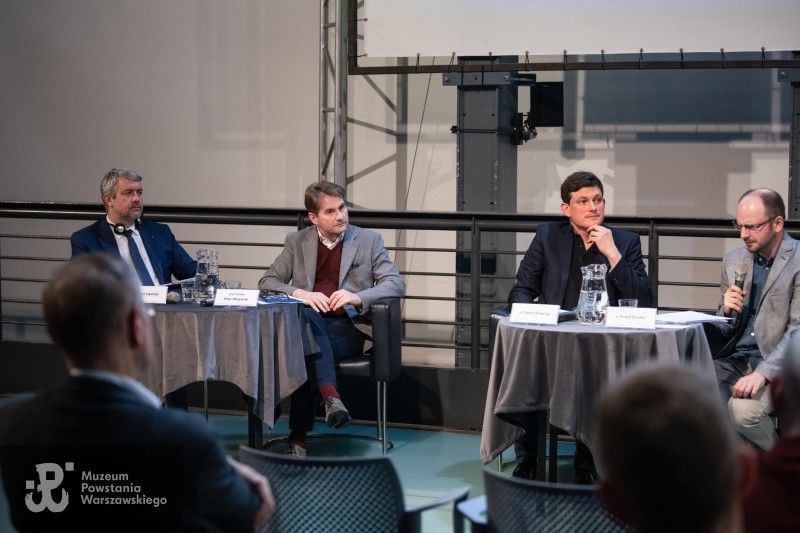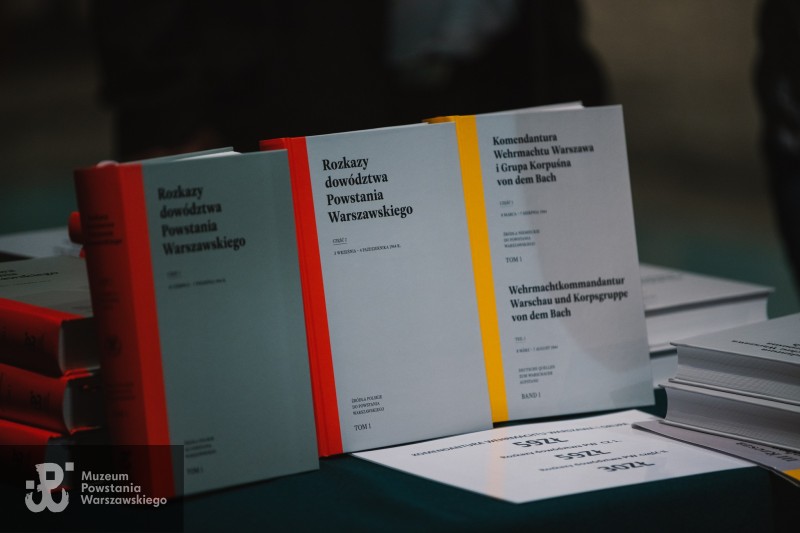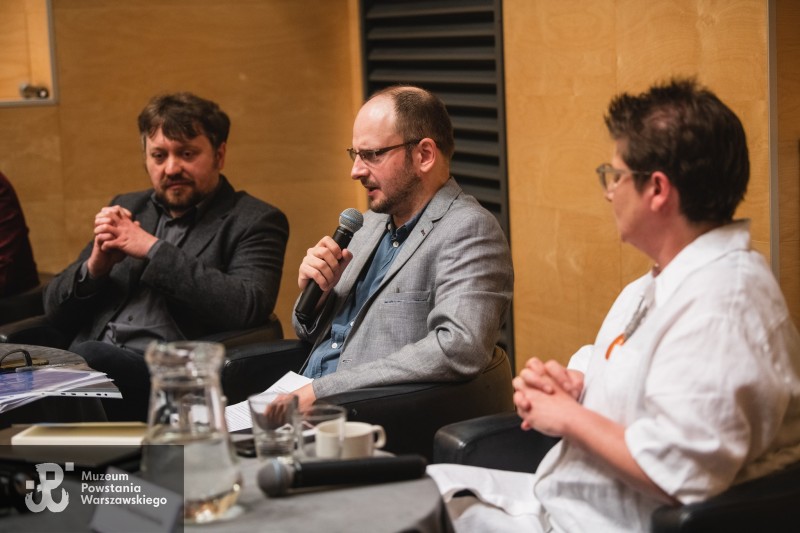



On 23-24 May 2024 the Warsaw Rising Museum organized a conference ‘The Third Reich towards the Warsaw Rising’ that aimed at a complex presentation of this historical battle from German perspective (reactions of military and civilian authorities, impact on the German war strategy and occupation politics).
We invited scholars from Poland and abroad to take part in the conference. Daniel Brewing, PhD (Aachen University) presented a wider look on the methods of terror used by the German police’s apparatus in Warsaw and showed that these methods reflected the German front fighting against the Soviet guerilla at the back of the eastern front. Paweł Brudek, PhD (Warsaw Rising Museum) drew the outline on the situation the 9 Army found itself in within the Wehrmacht that was humiliated by the defeats on the front and the attempt to assasinate Hitler. Confronting the Soviets and finishing off the Poles who tried to take over their capital created a critical situation that might have been used by Wehrmacht to improve their image.
Prof. Piotr Majewski (Stefan Wyszyński University, Warsaw) presented a paper on a systematic and well-planned annihilation of Warsaw by the German authorities that started already in fall 1939, which aimed at profound changes within the city structure according to the ideological assumptions of the German urban studies.

On the second day of the conference our newest book: “The Wehrmacht Command in Warsaw and the Corps under von dem Bach. Part 1” [Wehrmachtkommandantur Warschau und Korpsgruppe von dem Bach. Teil 1] co-authored by Norbert Bączyk, Paweł Brudek, Andrzej Chmielarz and Grzegorz Jasiński was presented. Norbert Bączyk, PhD, underlined in the discussion that followed that the German primary sources should be analysed and interpreted more thoroughly by the scholars. Still, there is an urgent need to continue the research in the German archives that are very dispersed across the country.
Hanna Radziejowska (the Head of the Berlin branch of the Pilecki Institute), focused on the literature as a historical source in her analysis of ‘Psy gończe’ by Alfred Łaszowski, who turned out the be a Gestapo spy in WW2. Paweł Brudek (Warsaw Rising Museum) pointed what are the challenges for publishing German military source materials from WW2. Prof. Stephan Lehnstaedt (Touro University, Berlin) presented diverse reactions of the top Nazi-German leaders to the outbreak of the Warsaw Rising, highlighting Himmler and Goebbels’s intentions to use the Rising for ‘their purposes’.

Paweł Głuszek, PhD (Institute of National Remembrance, Poznań) brought to light the role of Arthur Greiser, the Warta Region Gauleiter, in annihilation and monstrous looting of Warsaw. Paweł Kosiński (Institute of National Remembrance, Warsaw) proved that the Warsaw Rising posed an enormous threat to the General Government security and was a blow to Hans Frank’s politics that he had led under the banner of ‘a German reconstruction’.
Magnus Pahl, PhD (Zentrum für Militärgeschichte und Sozialwissenschaften der Bundeswehr) focused on the German intelligence services, Fremde Heere Ost, under gen. Reinhard Gehlen that infiltrated the Polish Underground structures to copy their experience to create the German underground. An interesting discussion followed on the real and fake role that Gehlen played, animated by prof. Jan Rydel (Jagiellonian University) who co-authored ”Raport Gehlena” (published in Polish).
Wojciech Wichert ((Institute of National Remembrance, Szczecin) described the structures of the German propaganda apparatus towards the Warsaw Rising and its use via media in 1944. Monika Napora (Maria Curie-Skłodowska University) presented an excellent analysis of a German announcement that was ‘framed’ to manipulate the content. Piotr Stanek, PhD (Central Museum of Prisoners-Of-War) provided a synthesis on the meanders of the German approach towards the Warsaw Rising participants who became POWs. The German camp apparatus was ‘surprised’ and had to improvise to imprison that many new POWs after the end of the Warsaw Rising (women and children were also protected under Geneva convention; German authorities were unprepared for their deportation into the camp).

To sum up, the conference highlighted different areas that desperately need academic research and these revolve around the German approach to the Warsaw Rising in 1944 and their attempts to use the Rising in the war puzzle. The key message was a call for further and profound research on how Germans perceived the Rising as well as bringing more public and media attention to the subject.
Original text in Polish by Paweł Brudek, PhD (Warsaw Rising Museum)